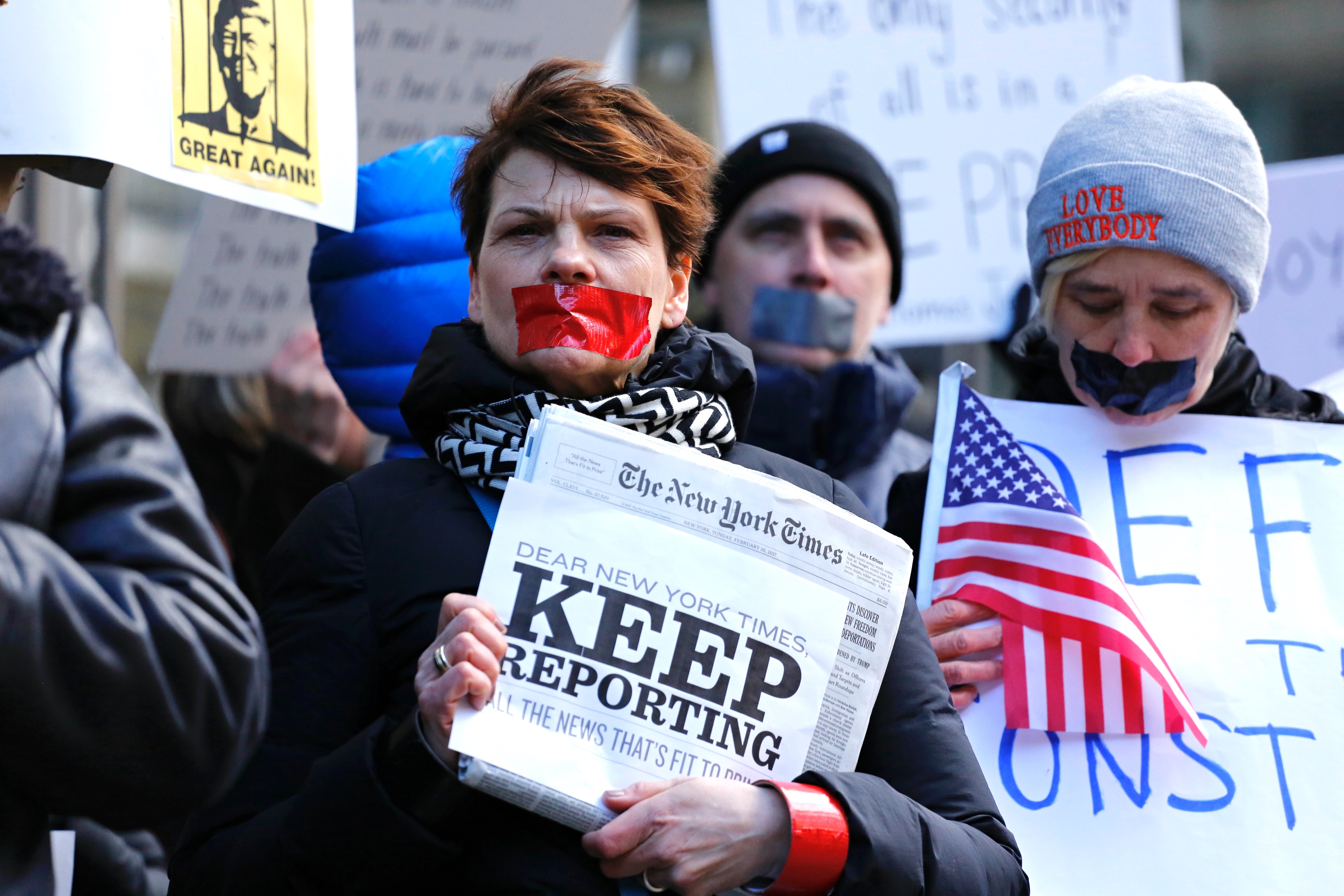The United Nations’ top human rights official said on Wednesday that derogatory remarks by US President Donald Trump about journalists could amount to incitement and embolden followers to attack certain communities.
Trump, speaking in Arizona last week, defended his response to a white supremacist-organized rally in Virginia and criticized news organizations for their coverage of the violence in the Virginia college town of Charlottesville, calling journalists “truly dishonest people”, news outlets reported.
UN High Commissioner for Human Rights Zeid Raad al-Hussein said: ”It’s really quite amazing when you think that freedom of the press, not only sort of a cornerstone of the US Constitution, but very much something that the United States defended over the years, is now itself under attack from the president.
“To call these news organizations ‘fake’ does tremendous damage and to refer to individual journalists in this way, I have to ask the question, is this not an incitement for others to attack journalists?
“And let’s assume a journalist is harmed from one of these organizations, does the president not bear responsibility for this, for having fanned this?” Zeid told reporters in Geneva.
“I believe it could amount to incitement,” he added, saying Trump had set in motion a cycle that includes “incitement, fear, self-censorship and violence.”
According to the rights chief, Trump’s assault on the media has emboldened other countries to crack down on press freedoms.
“The demonization of the press is poisonous because it has consequences elsewhere,” Zeid said.
Since bursting onto the political scene more than two years ago, Trump has relentlessly pounded journalists as “the enemy of the American people” and “among the worst people I’ve ever met.” He hijacked the term “fake news,” originally coined to describe bogus narratives circulated on the Internet, to describe any story that displeases him.
Audacious and Unrelenting Campaign
Trump is taking his anti-press tirades to new levels in an audacious and unrelenting campaign to delegitimize and demonize the media. In the process, he’s denting the longtime international view of the United States as the uncompromising champion of freedom of the press. Tom Rosenstiel, executive director of the American Press Institute, says the consensus abroad has become more like, “You are no longer the shining city on the hill.”
“There no longer is any attempt by this administration to have the United States stand as a model for press freedom or to encourage press freedom abroad,” says Alexandra Ellerbeck, a senior researcher at the Committee to Protect Journalists.
And that has an impact throughout the world, says Margaux Ewen, North America advocacy and communications director for Reporters Without Borders.
Trump’s tough talk “emboldens authoritarian leaders to call articles they don’t like ‘fake news,’” she says. “The rhetoric in the world is increasingly mimicking that of Trump. They no longer fear the consequences. If Trump can do it, they can as well.”
Ellerbeck and Ewen worry that the press-bashing can help create a climate that leads to violence against reporters in this country. Both cite the May incident in which Ben Jacobs, a reporter for The Guardian, was body slammed by Greg Gianforte, a Republican congressional candidate in Montana, who went on to win the race.
There also were instances in which a reporter was arrested for shouting questions at Health and Human Services Secretary Tom Price and another was manhandled for shouting questions at federal communications commission officials.
Concern over the issue is such that this month, a coalition of more than 20 press freedom organizations launched a Freedom Press Tracker to document anti-press abuses in the United States. The need for such an initiative, Ewen says, would have been unthinkable five years ago.
Reporters Without Borders annually ranks the nations of the world according to their record for freedom of the press. This year the United States ranked 43rd, right behind Burkina Faso. That’s down from 41 in 2016.


